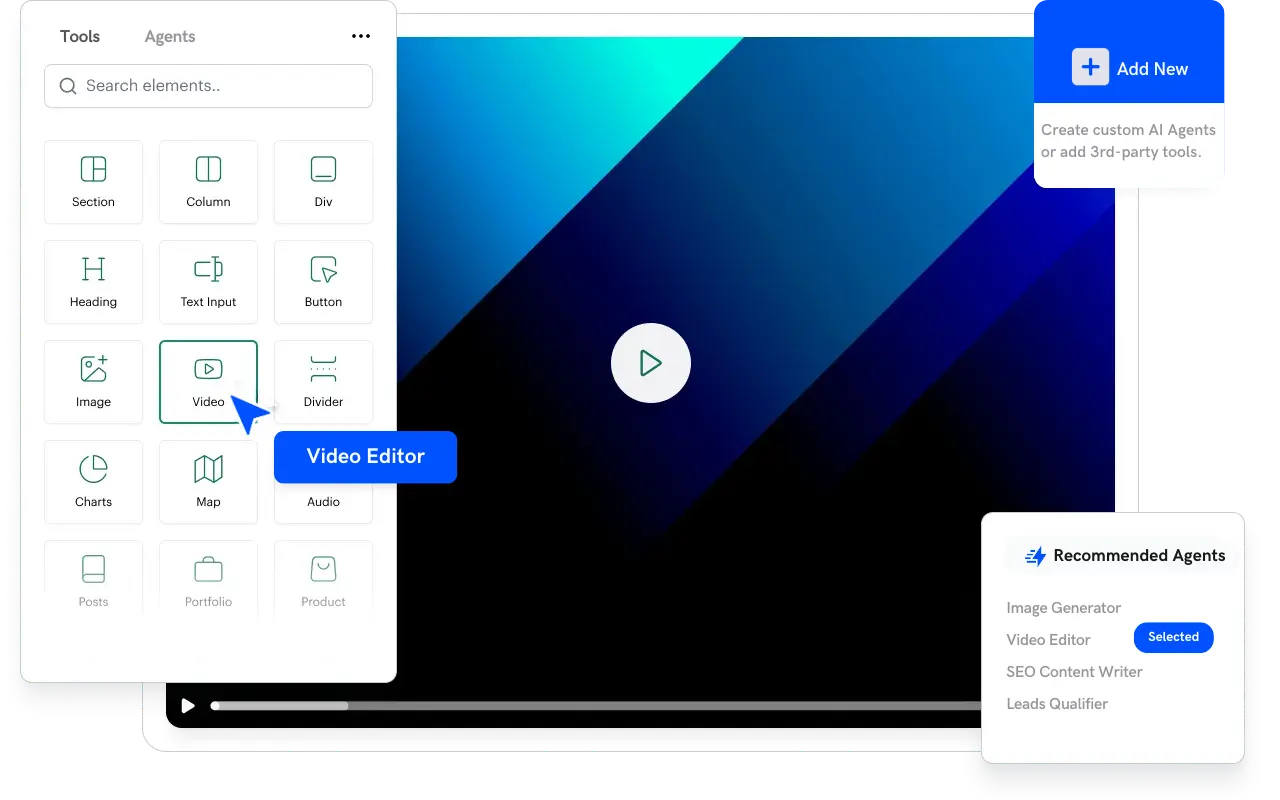Becoming a new parent is a life-changing experience, filled with joy, sleepless nights, and endless learning. In 2025, artificial intelligence (AI) is playing a more significant role in parenting, offering new ways to manage time, monitor a baby’s health, and enhance productivity. From AI-powered baby monitors to smart scheduling assistants, AI tools are revolutionizing the way parents navigate their new responsibilities.
In this article, we explore ten innovative use cases of AI for new parents, demonstrating how technology can simplify parenting, improve efficiency, and support child development.
1. AI-Powered Baby Monitors
Traditional baby monitors only provide audio or video feeds, but AI-powered monitors go a step further. These devices use machine learning algorithms to analyze a baby’s sleep patterns, breathing rate, and movements, alerting parents to potential issues such as sleep apnea or irregular breathing. Some models even integrate with mobile apps, providing real-time insights and recommendations to improve the baby’s sleep schedule.
Key Benefits:
- Real-time alerts for irregular sleep patterns
- Integration with smart home devices
- AI-generated sleep recommendations
2. Personalized Sleep Coaching
AI-driven sleep coaching apps analyze sleep data and offer customized tips for improving a baby’s sleep habits. By tracking wake-up times, feeding schedules, and nap durations, these tools help parents establish a consistent routine, leading to better sleep for both baby and parents.
Key Benefits:
- Automated sleep tracking and pattern analysis
- Custom sleep training plans
- AI-based lullabies and white noise generation
3. AI-Powered Nutrition and Feeding Assistance
Feeding a newborn involves tracking feeding times, quantities, and dietary needs. AI tools can assist by:
- Recommending optimal feeding schedules
- Monitoring nutrient intake based on the baby’s age and growth
- Suggesting dietary adjustments based on health conditions (e.g., colic, lactose intolerance)
Key Benefits:
- AI-driven personalized feeding plans
- Automated reminders and tracking logs
- Smart bottle warmers with temperature monitoring
4. Smart Diaper Sensors
AI-enabled diaper sensors notify parents when a diaper needs changing, reducing discomfort for the baby and preventing rashes. These sensors analyze moisture levels, detect signs of dehydration, and even flag possible infections based on urine composition.
Key Benefits:
- Instant notifications for wet diapers
- Health tracking insights
- Integration with pediatrician apps for real-time monitoring
5. AI-Powered Cry Detection and Interpretation
AI-based baby monitors can distinguish between different types of crying, helping parents identify whether the baby is hungry, tired, in pain, or needs a diaper change. These tools use deep learning models trained on thousands of baby cries to provide accurate interpretations.
Key Benefits:
- Immediate insights into baby’s needs
- Reduced stress for new parents
- AI-generated soothing techniques
6. Virtual Parenting Assistants
Virtual AI assistants help parents by providing instant parenting tips, developmental milestones, and medical advice. These assistants, often integrated with smart home devices, can answer common parenting questions, suggest activities, and even read bedtime stories using natural language processing.
Key Benefits:
- 24/7 parenting support
- Personalized activity recommendations
- Hands-free voice-activated assistance
7. AI-Enhanced Baby Development Tracking
AI tools can track a baby’s development by analyzing physical growth, speech patterns, and motor skills. These platforms compare data against medical benchmarks and alert parents to any potential developmental delays.
Key Benefits:
- AI-driven milestone tracking
- Early detection of developmental concerns
- Personalized growth recommendations
8. Smart Scheduling for Parents
Balancing work, home duties, and parenting can be overwhelming. AI-powered scheduling tools, such as Turbomode, help parents manage daily routines, automate reminders, and sync calendars between caregivers.
Key Benefits:
- AI-optimized daily planning
- Task automation and scheduling
- Collaborative calendar sharing for co-parents
9. AI-Powered Health Monitoring
Wearable AI health devices can track a baby’s vitals, temperature, and movement. These devices detect fevers, irregular breathing, and potential illnesses, alerting parents before symptoms worsen.
Key Benefits:
- Early illness detection
- Continuous health tracking
- Integration with pediatric telemedicine apps
10. AI-Driven Storytelling and Education
AI-powered storytelling apps create personalized bedtime stories using a child’s name and preferences. Additionally, AI-based educational apps adapt to a baby’s cognitive development, introducing age-appropriate activities that boost learning.
Key Benefits:
- Engaging, interactive storytelling
- Personalized early learning programs
- Voice recognition for baby interaction
Conclusion
AI is transforming the parenting experience by providing smarter, more intuitive tools that reduce stress and enhance productivity. From AI-powered baby monitors to personalized learning assistants, these innovations help new parents manage their responsibilities with greater ease. In 2025, embracing AI-driven parenting solutions can make the journey of raising a child more efficient, enjoyable, and informed.
Photo by Tamara Govedarovic on Unsplash






